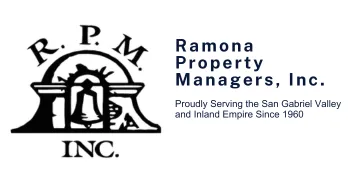Management Matters
Expert tips, tricks, and techniques for effective property management."
Property Management

Maximizing Rental Income: Effective Strategies for Pricing Your Property
Introduction
In the world of property management, maximizing rental income is a top priority for landlords and property owners. To achieve this goal, it is essential to employ effective strategies for pricing your property accurately. This blog post will delve into the importance of accurate pricing, with a focus on stable tenancy. Additionally, we will explore common traps to avoid when pricing your rental property. By implementing these strategies, you can optimize your rental income and create a financially successful investment.
Importance of Accurate Pricing
Accurate pricing is crucial for attracting stable tenancy and maximizing rental income. Let's examine why this is so important:
Attracting Stable Tenancy
Setting the right rental price plays a significant role in attracting reliable and long-term tenants. When the rent is set at a fair market value, potential tenants who can comfortably afford the rent are more likely to be interested in your property. This increases the chances of securing stable tenancy, reducing turnover rates, and minimizing the costs associated with vacancy periods and tenant turnover.
Maximizing Rental Income
Accurate pricing allows you to optimize your rental income. Pricing your property too low may result in missed opportunities to generate higher revenue. Conversely, overpricing your property can lead to extended vacancy periods and potential financial loss. By carefully assessing the market, considering comparable rentals, and setting a competitive price, you can maximize your rental income while maintaining tenant satisfaction.
Effective Strategies for Pricing Your Property
Conduct Thorough Market Research
Begin by conducting comprehensive market research to gain valuable insights into rental rates for similar properties in your area. This research will help you understand the current market conditions and determine a competitive rent for your property. Utilize online listings, local real estate agents, and property management associations to gather relevant data. By staying informed about the local market, you can make informed pricing decisions.
Consider Rental Property Expenses
When pricing your property, it is crucial to take into account all the expenses associated with it. These expenses may include mortgage payments, property taxes, insurance, maintenance costs, and property management fees. By understanding your expenses, you can ensure that your rental income covers these costs while still allowing for a reasonable profit. Failing to consider expenses properly can result in setting an unrealistic rental price that is not financially sustainable.
Assess Property Unique Selling Points
Identify and highlight the unique selling points of your property. These could be desirable amenities, a prime location, or exceptional interior design. Consider how these features compare to other rentals in the area and adjust your pricing accordingly. Properties with added value and attractive features can justify a slightly higher rent. Tenants are often willing to pay more for properties that offer a higher level of comfort, convenience, or aesthetic appeal.
Traps to Look For When Pricing
Emotional Attachment
It is essential to avoid letting personal emotions or attachment to the property influence your pricing decisions. While sentimental value may be significant to you, tenants will primarily base their decision on market rates and the value they perceive in the property. Setting an unrealistic price based on emotional attachment may lead to difficulty in finding tenants or pricing the property out of the market.
Ignoring Market Trends
Stay informed about market trends and fluctuations in rental prices. The rental market can change over time due to various factors such as supply and demand, economic conditions, or changes in the neighborhood. Ignoring these trends may result in overpricing or underpricing your property, leading to financial loss or missed opportunities. Regularly monitoring the market and adjusting your pricing strategy accordingly is essential for success.
Failing to Reassess Pricing Regularly
Pricing your property should not be a one-time decision. It is crucial to reassess your pricing strategy regularly to ensure it remains competitive in the market. The rental market can evolve, and rental rates can fluctuate. Regularly reviewing and adjusting your pricing helps you stay competitive, attract quality tenants, and maximize your rental income. Failure to reassess pricing regularly may result in missed opportunities for increased rental income.
Conclusion
Accurate pricing is a fundamental aspect of maximizing rental income and attracting stable tenancy. By conducting thorough market research, considering rental property expenses, and highlighting unique selling points, you can set an accurate and competitive rent. Avoid common traps such as emotional attachment, ignoring market trends, and failing to reassess pricing regularly. By implementing these strategies, you can optimize your rental income, maintain tenant satisfaction, and achieve long-term success in the rental property market.
Tenant Relations

Maximizing Rental Income: Effective Strategies for Pricing Your Property
Introduction
In the world of property management, maximizing rental income is a top priority for landlords and property owners. To achieve this goal, it is essential to employ effective strategies for pricing your property accurately. This blog post will delve into the importance of accurate pricing, with a focus on stable tenancy. Additionally, we will explore common traps to avoid when pricing your rental property. By implementing these strategies, you can optimize your rental income and create a financially successful investment.
Importance of Accurate Pricing
Accurate pricing is crucial for attracting stable tenancy and maximizing rental income. Let's examine why this is so important:
Attracting Stable Tenancy
Setting the right rental price plays a significant role in attracting reliable and long-term tenants. When the rent is set at a fair market value, potential tenants who can comfortably afford the rent are more likely to be interested in your property. This increases the chances of securing stable tenancy, reducing turnover rates, and minimizing the costs associated with vacancy periods and tenant turnover.
Maximizing Rental Income
Accurate pricing allows you to optimize your rental income. Pricing your property too low may result in missed opportunities to generate higher revenue. Conversely, overpricing your property can lead to extended vacancy periods and potential financial loss. By carefully assessing the market, considering comparable rentals, and setting a competitive price, you can maximize your rental income while maintaining tenant satisfaction.
Effective Strategies for Pricing Your Property
Conduct Thorough Market Research
Begin by conducting comprehensive market research to gain valuable insights into rental rates for similar properties in your area. This research will help you understand the current market conditions and determine a competitive rent for your property. Utilize online listings, local real estate agents, and property management associations to gather relevant data. By staying informed about the local market, you can make informed pricing decisions.
Consider Rental Property Expenses
When pricing your property, it is crucial to take into account all the expenses associated with it. These expenses may include mortgage payments, property taxes, insurance, maintenance costs, and property management fees. By understanding your expenses, you can ensure that your rental income covers these costs while still allowing for a reasonable profit. Failing to consider expenses properly can result in setting an unrealistic rental price that is not financially sustainable.
Assess Property Unique Selling Points
Identify and highlight the unique selling points of your property. These could be desirable amenities, a prime location, or exceptional interior design. Consider how these features compare to other rentals in the area and adjust your pricing accordingly. Properties with added value and attractive features can justify a slightly higher rent. Tenants are often willing to pay more for properties that offer a higher level of comfort, convenience, or aesthetic appeal.
Traps to Look For When Pricing
Emotional Attachment
It is essential to avoid letting personal emotions or attachment to the property influence your pricing decisions. While sentimental value may be significant to you, tenants will primarily base their decision on market rates and the value they perceive in the property. Setting an unrealistic price based on emotional attachment may lead to difficulty in finding tenants or pricing the property out of the market.
Ignoring Market Trends
Stay informed about market trends and fluctuations in rental prices. The rental market can change over time due to various factors such as supply and demand, economic conditions, or changes in the neighborhood. Ignoring these trends may result in overpricing or underpricing your property, leading to financial loss or missed opportunities. Regularly monitoring the market and adjusting your pricing strategy accordingly is essential for success.
Failing to Reassess Pricing Regularly
Pricing your property should not be a one-time decision. It is crucial to reassess your pricing strategy regularly to ensure it remains competitive in the market. The rental market can evolve, and rental rates can fluctuate. Regularly reviewing and adjusting your pricing helps you stay competitive, attract quality tenants, and maximize your rental income. Failure to reassess pricing regularly may result in missed opportunities for increased rental income.
Conclusion
Accurate pricing is a fundamental aspect of maximizing rental income and attracting stable tenancy. By conducting thorough market research, considering rental property expenses, and highlighting unique selling points, you can set an accurate and competitive rent. Avoid common traps such as emotional attachment, ignoring market trends, and failing to reassess pricing regularly. By implementing these strategies, you can optimize your rental income, maintain tenant satisfaction, and achieve long-term success in the rental property market.
Compliance

Maximizing Rental Income: Effective Strategies for Pricing Your Property
Introduction
In the world of property management, maximizing rental income is a top priority for landlords and property owners. To achieve this goal, it is essential to employ effective strategies for pricing your property accurately. This blog post will delve into the importance of accurate pricing, with a focus on stable tenancy. Additionally, we will explore common traps to avoid when pricing your rental property. By implementing these strategies, you can optimize your rental income and create a financially successful investment.
Importance of Accurate Pricing
Accurate pricing is crucial for attracting stable tenancy and maximizing rental income. Let's examine why this is so important:
Attracting Stable Tenancy
Setting the right rental price plays a significant role in attracting reliable and long-term tenants. When the rent is set at a fair market value, potential tenants who can comfortably afford the rent are more likely to be interested in your property. This increases the chances of securing stable tenancy, reducing turnover rates, and minimizing the costs associated with vacancy periods and tenant turnover.
Maximizing Rental Income
Accurate pricing allows you to optimize your rental income. Pricing your property too low may result in missed opportunities to generate higher revenue. Conversely, overpricing your property can lead to extended vacancy periods and potential financial loss. By carefully assessing the market, considering comparable rentals, and setting a competitive price, you can maximize your rental income while maintaining tenant satisfaction.
Effective Strategies for Pricing Your Property
Conduct Thorough Market Research
Begin by conducting comprehensive market research to gain valuable insights into rental rates for similar properties in your area. This research will help you understand the current market conditions and determine a competitive rent for your property. Utilize online listings, local real estate agents, and property management associations to gather relevant data. By staying informed about the local market, you can make informed pricing decisions.
Consider Rental Property Expenses
When pricing your property, it is crucial to take into account all the expenses associated with it. These expenses may include mortgage payments, property taxes, insurance, maintenance costs, and property management fees. By understanding your expenses, you can ensure that your rental income covers these costs while still allowing for a reasonable profit. Failing to consider expenses properly can result in setting an unrealistic rental price that is not financially sustainable.
Assess Property Unique Selling Points
Identify and highlight the unique selling points of your property. These could be desirable amenities, a prime location, or exceptional interior design. Consider how these features compare to other rentals in the area and adjust your pricing accordingly. Properties with added value and attractive features can justify a slightly higher rent. Tenants are often willing to pay more for properties that offer a higher level of comfort, convenience, or aesthetic appeal.
Traps to Look For When Pricing
Emotional Attachment
It is essential to avoid letting personal emotions or attachment to the property influence your pricing decisions. While sentimental value may be significant to you, tenants will primarily base their decision on market rates and the value they perceive in the property. Setting an unrealistic price based on emotional attachment may lead to difficulty in finding tenants or pricing the property out of the market.
Ignoring Market Trends
Stay informed about market trends and fluctuations in rental prices. The rental market can change over time due to various factors such as supply and demand, economic conditions, or changes in the neighborhood. Ignoring these trends may result in overpricing or underpricing your property, leading to financial loss or missed opportunities. Regularly monitoring the market and adjusting your pricing strategy accordingly is essential for success.
Failing to Reassess Pricing Regularly
Pricing your property should not be a one-time decision. It is crucial to reassess your pricing strategy regularly to ensure it remains competitive in the market. The rental market can evolve, and rental rates can fluctuate. Regularly reviewing and adjusting your pricing helps you stay competitive, attract quality tenants, and maximize your rental income. Failure to reassess pricing regularly may result in missed opportunities for increased rental income.
Conclusion
Accurate pricing is a fundamental aspect of maximizing rental income and attracting stable tenancy. By conducting thorough market research, considering rental property expenses, and highlighting unique selling points, you can set an accurate and competitive rent. Avoid common traps such as emotional attachment, ignoring market trends, and failing to reassess pricing regularly. By implementing these strategies, you can optimize your rental income, maintain tenant satisfaction, and achieve long-term success in the rental property market.
Compliance

Maximizing Rental Income: Effective Strategies for Pricing Your Property
Introduction
In the world of property management, maximizing rental income is a top priority for landlords and property owners. To achieve this goal, it is essential to employ effective strategies for pricing your property accurately. This blog post will delve into the importance of accurate pricing, with a focus on stable tenancy. Additionally, we will explore common traps to avoid when pricing your rental property. By implementing these strategies, you can optimize your rental income and create a financially successful investment.
Importance of Accurate Pricing
Accurate pricing is crucial for attracting stable tenancy and maximizing rental income. Let's examine why this is so important:
Attracting Stable Tenancy
Setting the right rental price plays a significant role in attracting reliable and long-term tenants. When the rent is set at a fair market value, potential tenants who can comfortably afford the rent are more likely to be interested in your property. This increases the chances of securing stable tenancy, reducing turnover rates, and minimizing the costs associated with vacancy periods and tenant turnover.
Maximizing Rental Income
Accurate pricing allows you to optimize your rental income. Pricing your property too low may result in missed opportunities to generate higher revenue. Conversely, overpricing your property can lead to extended vacancy periods and potential financial loss. By carefully assessing the market, considering comparable rentals, and setting a competitive price, you can maximize your rental income while maintaining tenant satisfaction.
Effective Strategies for Pricing Your Property
Conduct Thorough Market Research
Begin by conducting comprehensive market research to gain valuable insights into rental rates for similar properties in your area. This research will help you understand the current market conditions and determine a competitive rent for your property. Utilize online listings, local real estate agents, and property management associations to gather relevant data. By staying informed about the local market, you can make informed pricing decisions.
Consider Rental Property Expenses
When pricing your property, it is crucial to take into account all the expenses associated with it. These expenses may include mortgage payments, property taxes, insurance, maintenance costs, and property management fees. By understanding your expenses, you can ensure that your rental income covers these costs while still allowing for a reasonable profit. Failing to consider expenses properly can result in setting an unrealistic rental price that is not financially sustainable.
Assess Property Unique Selling Points
Identify and highlight the unique selling points of your property. These could be desirable amenities, a prime location, or exceptional interior design. Consider how these features compare to other rentals in the area and adjust your pricing accordingly. Properties with added value and attractive features can justify a slightly higher rent. Tenants are often willing to pay more for properties that offer a higher level of comfort, convenience, or aesthetic appeal.
Traps to Look For When Pricing
Emotional Attachment
It is essential to avoid letting personal emotions or attachment to the property influence your pricing decisions. While sentimental value may be significant to you, tenants will primarily base their decision on market rates and the value they perceive in the property. Setting an unrealistic price based on emotional attachment may lead to difficulty in finding tenants or pricing the property out of the market.
Ignoring Market Trends
Stay informed about market trends and fluctuations in rental prices. The rental market can change over time due to various factors such as supply and demand, economic conditions, or changes in the neighborhood. Ignoring these trends may result in overpricing or underpricing your property, leading to financial loss or missed opportunities. Regularly monitoring the market and adjusting your pricing strategy accordingly is essential for success.
Failing to Reassess Pricing Regularly
Pricing your property should not be a one-time decision. It is crucial to reassess your pricing strategy regularly to ensure it remains competitive in the market. The rental market can evolve, and rental rates can fluctuate. Regularly reviewing and adjusting your pricing helps you stay competitive, attract quality tenants, and maximize your rental income. Failure to reassess pricing regularly may result in missed opportunities for increased rental income.
Conclusion
Accurate pricing is a fundamental aspect of maximizing rental income and attracting stable tenancy. By conducting thorough market research, considering rental property expenses, and highlighting unique selling points, you can set an accurate and competitive rent. Avoid common traps such as emotional attachment, ignoring market trends, and failing to reassess pricing regularly. By implementing these strategies, you can optimize your rental income, maintain tenant satisfaction, and achieve long-term success in the rental property market.
Real Estate Services

Maximizing Rental Income: Effective Strategies for Pricing Your Property
Introduction
In the world of property management, maximizing rental income is a top priority for landlords and property owners. To achieve this goal, it is essential to employ effective strategies for pricing your property accurately. This blog post will delve into the importance of accurate pricing, with a focus on stable tenancy. Additionally, we will explore common traps to avoid when pricing your rental property. By implementing these strategies, you can optimize your rental income and create a financially successful investment.
Importance of Accurate Pricing
Accurate pricing is crucial for attracting stable tenancy and maximizing rental income. Let's examine why this is so important:
Attracting Stable Tenancy
Setting the right rental price plays a significant role in attracting reliable and long-term tenants. When the rent is set at a fair market value, potential tenants who can comfortably afford the rent are more likely to be interested in your property. This increases the chances of securing stable tenancy, reducing turnover rates, and minimizing the costs associated with vacancy periods and tenant turnover.
Maximizing Rental Income
Accurate pricing allows you to optimize your rental income. Pricing your property too low may result in missed opportunities to generate higher revenue. Conversely, overpricing your property can lead to extended vacancy periods and potential financial loss. By carefully assessing the market, considering comparable rentals, and setting a competitive price, you can maximize your rental income while maintaining tenant satisfaction.
Effective Strategies for Pricing Your Property
Conduct Thorough Market Research
Begin by conducting comprehensive market research to gain valuable insights into rental rates for similar properties in your area. This research will help you understand the current market conditions and determine a competitive rent for your property. Utilize online listings, local real estate agents, and property management associations to gather relevant data. By staying informed about the local market, you can make informed pricing decisions.
Consider Rental Property Expenses
When pricing your property, it is crucial to take into account all the expenses associated with it. These expenses may include mortgage payments, property taxes, insurance, maintenance costs, and property management fees. By understanding your expenses, you can ensure that your rental income covers these costs while still allowing for a reasonable profit. Failing to consider expenses properly can result in setting an unrealistic rental price that is not financially sustainable.
Assess Property Unique Selling Points
Identify and highlight the unique selling points of your property. These could be desirable amenities, a prime location, or exceptional interior design. Consider how these features compare to other rentals in the area and adjust your pricing accordingly. Properties with added value and attractive features can justify a slightly higher rent. Tenants are often willing to pay more for properties that offer a higher level of comfort, convenience, or aesthetic appeal.
Traps to Look For When Pricing
Emotional Attachment
It is essential to avoid letting personal emotions or attachment to the property influence your pricing decisions. While sentimental value may be significant to you, tenants will primarily base their decision on market rates and the value they perceive in the property. Setting an unrealistic price based on emotional attachment may lead to difficulty in finding tenants or pricing the property out of the market.
Ignoring Market Trends
Stay informed about market trends and fluctuations in rental prices. The rental market can change over time due to various factors such as supply and demand, economic conditions, or changes in the neighborhood. Ignoring these trends may result in overpricing or underpricing your property, leading to financial loss or missed opportunities. Regularly monitoring the market and adjusting your pricing strategy accordingly is essential for success.
Failing to Reassess Pricing Regularly
Pricing your property should not be a one-time decision. It is crucial to reassess your pricing strategy regularly to ensure it remains competitive in the market. The rental market can evolve, and rental rates can fluctuate. Regularly reviewing and adjusting your pricing helps you stay competitive, attract quality tenants, and maximize your rental income. Failure to reassess pricing regularly may result in missed opportunities for increased rental income.
Conclusion
Accurate pricing is a fundamental aspect of maximizing rental income and attracting stable tenancy. By conducting thorough market research, considering rental property expenses, and highlighting unique selling points, you can set an accurate and competitive rent. Avoid common traps such as emotional attachment, ignoring market trends, and failing to reassess pricing regularly. By implementing these strategies, you can optimize your rental income, maintain tenant satisfaction, and achieve long-term success in the rental property market.


